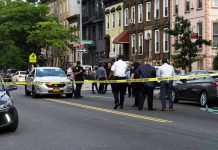
San Diego’s controversial “bubble zone” law forces pro-life advocate Roger Lopez to appeal to the Ninth Circuit Court, fighting for the right to offer abortion alternatives without facing criminal prosecution for normal conversation.
Key Takeaways
- Pro-life activist Roger Lopez is challenging San Diego’s buffer zone law, which restricts pro-life activities within 100 feet of abortion facilities and creates an 8-foot “floating zone” around individuals.
- The Thomas More Society represents Lopez, arguing the ordinance violates First and Fourteenth Amendment rights by making sidewalk counseling virtually impossible.
- After U.S. District Judge Linda Lopez dismissed his initial lawsuit in March 2025, Lopez is appealing to the Ninth Circuit Court of Appeals.
- The ordinance allows Planned Parenthood employees to approach women but criminalizes peaceful pro-life advocates who attempt the same conversations.
- The case could set a national precedent for pro-life advocacy and free speech rights on public sidewalks.
San Diego’s Sweeping Restrictions on Pro-Life Speech
In June 2024, San Diego Mayor Todd Gloria signed into law a restrictive “bubble zone” ordinance that has severely curtailed pro-life outreach near abortion facilities. The law establishes a 100-foot buffer zone around abortion centers and prohibits approaching anyone within eight feet without their consent. Additionally, it imposes restrictions on noise levels and sign displays, effectively preventing meaningful engagement with women considering abortion. The ordinance mirrors Colorado’s buffer zone law upheld in Hill v. Colorado, but pro-life advocates argue the Supreme Court has since expressed skepticism about such restrictions.
“It is an ordinance that is breathtaking in its sweep. Essentially, you can’t talk to anybody on sidewalks in a vast swath of the city of San Diego — all because they are trying to stop folks like Roger who offer assistance at the abortion clinics in the city,” Peter Breen, Thomas More Society Executive Vice President
Lopez, who has spent 15 years offering sidewalk counseling outside Planned Parenthood facilities, dedicates 2-3 hours daily outside San Diego’s downtown clinic, which reportedly performs 24,000 abortions annually. Under the new ordinance, his ability to reach women has been dramatically diminished. What’s particularly troubling for pro-life advocates is the apparent double standard: Planned Parenthood employees can freely approach and speak with women, while those offering alternatives face potential criminal prosecution for attempting similar conversations.
Constitutional Challenge Heads to Appeals Court
After U.S. District Judge Linda Lopez dismissed his initial lawsuit in March 2025, Roger Lopez and his legal team are taking their fight to the Ninth Circuit Court of Appeals. The Thomas More Society, representing Lopez, argues that the ordinance violates both the First Amendment right to free speech and the Fourteenth Amendment’s equal protection clause. They contend the law unjustly targets pro-life speech while allowing other types of communication in the same public spaces. Moreover, they point to the lack of evidence showing any actual threats or incidents that would justify such severe restrictions.
“San Diego has created a constitutional travesty where Planned Parenthood employees can freely harass and pressure vulnerable women right up to the clinic door, but peaceful sidewalk counselors offering help and hope face criminal prosecution for normal conversation,” Peter Breen, Thomas More Society Executive Vice President
The legal challenge emphasizes that sidewalks are traditionally protected forums for free speech in America. By restricting speech in these public spaces, San Diego’s ordinance potentially undermines a fundamental civil liberty. The Thomas More Society further argues that the city appears to have been unduly influenced by pro-abortion advocates and the city attorney’s office in crafting legislation that specifically targets pro-life expression rather than addressing legitimate public safety concerns.
Broader Implications for Women’s Choices and Free Speech
Beyond the constitutional questions, Lopez’s case highlights concerns about women’s access to complete information when making pregnancy decisions. Supporters argue that sidewalk counselors provide crucial emotional support and alternatives that may not be presented inside abortion facilities. By restricting this outreach, the ordinance potentially limits women’s ability to make fully informed choices. The Thomas More Society is involved in similar cases throughout California, challenging what they see as a pattern of restrictions on pro-life speech.
“Pro-life sidewalk counselors like Roger Lopez offer these women help, compassion, support, and information. But the City of San Diego wants to deprive women of this information, leading them to mistakenly believe that abortion is their only option,” Paul Jonna, Thomas More Society Special Counsel
The outcome of Lopez’s appeal could establish an important precedent for pro-life advocacy nationwide. With similar buffer zone laws being challenged in the UK, Scotland, and Quebec, the San Diego case represents part of a global struggle over the balance between regulating public spaces and protecting free speech. The Thomas More Society remains optimistic about its chances on appeal, particularly given recent Supreme Court decisions that have shown increasing skepticism toward buffer zone laws that restrict political and religious speech on public sidewalks.




